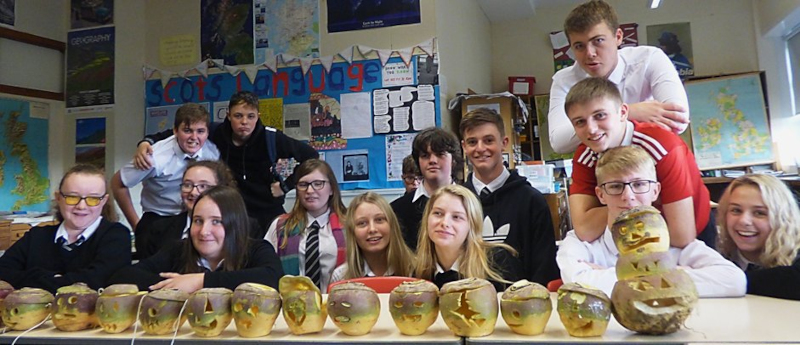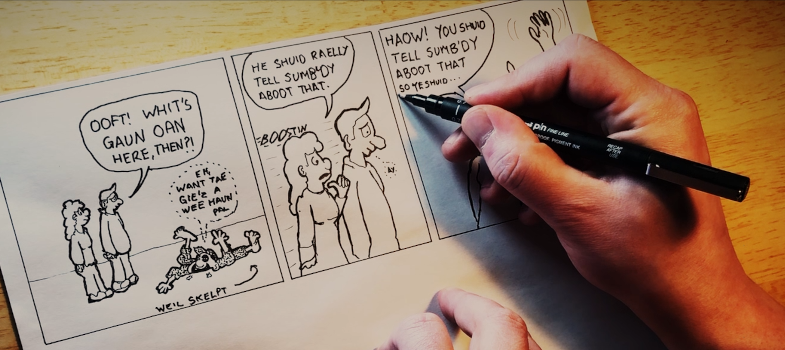Scots and Social Studies at Secondary School

© Jamie Fairbairn
6. Tutorial
Now you will review your learning and bring your ideas together in preparation for applying your learning at school with a group of youngsters. You will discuss what you have learned with colleagues, both in your curricular area and other curricular areas. You will collate your ideas and discuss plans for delivering your own lesson or series of lessons, involving Scots. An ability to speak Scots in lessons is not essential, but you will facilitate learners to engage with Scots. Think of learning that will suit your learners, and address curriculum outcomes. You can use resources and ideas from this unit or come up with your own.
Learners may be unused to being allowed to use and think about Scots in lessons, so before launching into strictly curricular linked activities, it is always worth brainstorming Scots words with your learners to evaluate their knowledge. Freely discuss attitudes to Scots they have encountered, and whether and how it is used at home by parents and grandparents. You may be surprised by how much Scots your learners know. Planning can be based around the results of your evaluation.
Activity 5
In preparation for the tutorial, write a rough plan for a lesson activity involving the Scots language, which builds on what you have studied in this unit so far. Bring this draft plan as well as any questions you might have about planning something suitable to the tutorial session.
You can find out when the tutorial will take place in your course timetable.
Your plan should include the following:
the age group and subject area
suitable Scots vocabulary you plan to use/introduce
a suitable resource or more which you want introduce to support the use of Scots in your classroom
suitable activities around the resource that can help develop your learners’:
understanding of the Scots language
their confidence in using it
their understanding of a particular aspect of your subject area
